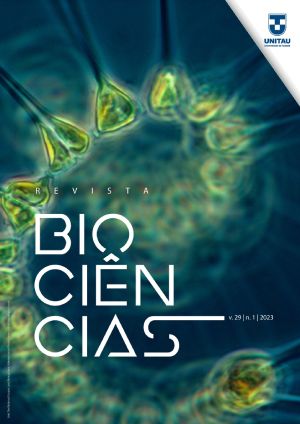Ocorrência de parasitos zoonóticos em fezes coletadas em parques para cães (Parcão) do município de Taubaté, São Paulo, Brasil
Resumo
Com o aumento de cães domiciliados no Brasil, vários municípios têm criado áreas de convívio para estes animais, conhecidas como “Parcão”, as quais ofertam benefícios diversos, mas também podem ser ambientes propícios para a contaminação por enteroparasitos e para a transmissão de zoonoses. O estudo teve como objetivo avaliar a presença de parasitos zoonóticos em amostras fecais de cães que frequentam “Parcões” em Taubaté, SP, além de comparar a eficácia e sensibilidade dos métodos de Willis, Faust e Ritchie para a detecção de helmintos e protozoários intestinais. Para tanto, no segundo semestre de 2022 e primeiro semestre de 2023, foram coletadas um total de 120 amostras fecais em dois parques para cães do munícipio, as quais foram encaminhadas sob refrigeração ao Laboratório de Parasitologia da Universidade de Taubaté, para serem submetidas aos métodos de Willis, Faust e Ritchie modificado, e posterior leitura em microscopia óptica. Das amostras analisadas, 19,16% apresentaram positividade para algum helminto, sem a detecção de protozoários, sendo observada uma prevalência de monoparasitismo, correspondendo a 95,65% (χ2/p<0,0001). Além disso, foi constatado um predomínio significativo de Ancylostoma spp. (χ2/p<0,0001) em relação aos demais parasitos verificados. A técnica de Willis demonstrou maior eficácia no diagnóstico de Ancylostoma spp., embora sem diferenças estatisticamente significativas em comparação aos outros métodos. Este estudo destaca a importância da vigilância e medidas preventivas para mitigar os riscos à saúde pública em parques para cães, sendo a colaboração entre autoridades, pesquisadores e comunidade essencial para garantir um ambiente seguro para os cães e para a população.
Palavras-chave: Enteroparasitose; Exame coproparasitológico; Cães domiciliados.






